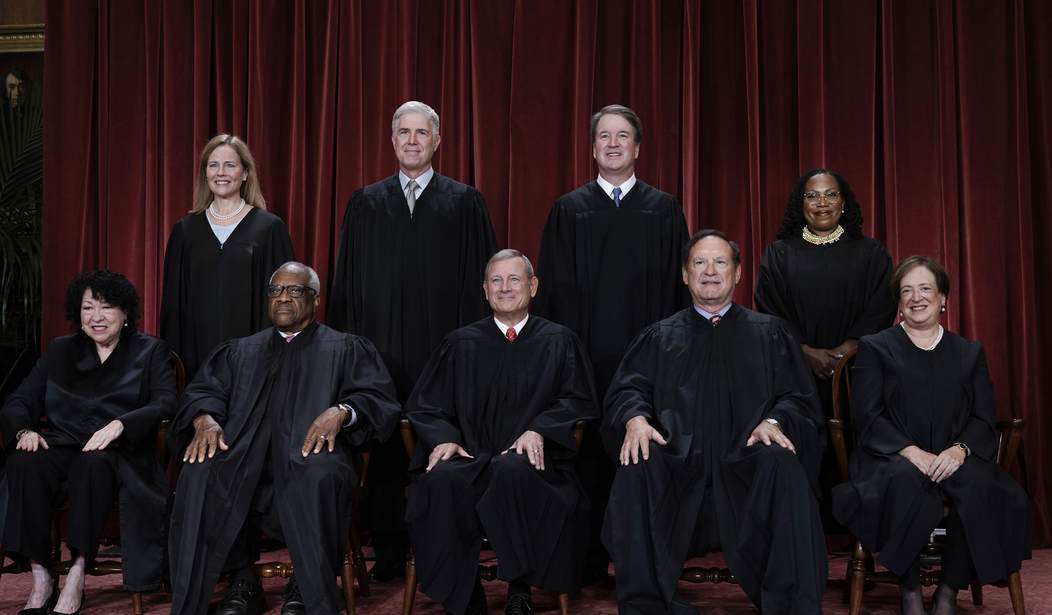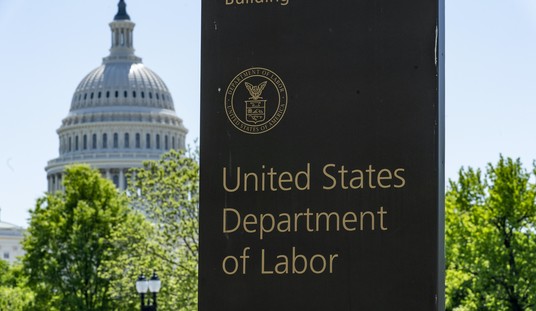The Supreme Court heard oral argument on Thursday in three (consolidated) cases involving challenges to President Donald Trump's executive order regarding birthright citizenship. I listened to the argument and have a few takeaways that I'll share here, but there are some preliminary matters to address before I do that.
First, as explained previously, today's argument was not about the merits of the executive order (though they necessarily were discussed to a degree), nor was it about the merits of nationwide or universal injunctions in all contexts.
Second, even the most learned legal scholars (which I most assuredly am not) will tell you there's no way to be certain which way and on what basis the court will rule based on oral argument. You can glean things about the way certain justices are leaning, and you can make an educated guess. But you cannot be certain. So...the following is simply that: an educated guess.
Third, no matter the outcome, a lot of people will be irked with it.
All that said, I have several takeaways, one of which is definitive: Whatever the ruling is, it will not be a 9-0 decision. (Many assume that all or most Supreme Court decisions are sharply divided along party/ideological lines. This is not at all the case. In fact, for the previous (2023) term, 26 — almost half — of the court's decisions were unanimous. Thus far in the 2024 term, there have been 14 unanimous decisions out of 30.)
I say that with confidence because the tenor of the questioning from the justices made it clear to me that the three liberal justices — Elena Kagan, Sonia Sotomayor, and Ketanji Brown Jackson — are not on board with the Trump administration's position here, while Clarence Thomas clearly is, and Samuel Alito (who was somewhat quiet for this argument) can be presumed to be based on prior indications. I'd also say that Brett Kavanaugh seemed inclined to agree with the administration, and John Roberts seemed to lean that way.
The two unknowns to me are Amy Coney Barrett and Neil Gorsuch — which is why I'm not overly confident that the administration will pick up a win here. In fact, my initial instinct on it was that it would lose narrowly. I'm since reconsidering that, for reasons I'll get into momentarily. But if I'm being perfectly honest, my initial read was that Solicitor General John Sauer, while making a valiant effort here (no knock on his skills whatsoever), has a tall order with this argument. I would ask those who might bristle at that characterization to bear with me while I attempt to explain.
The underlying merits are not a slam dunk — in either direction. There are strong legal arguments on both sides of the issue (and have been for decades). And keep in mind — there's a difference between what the constitutional language at issue provides and what many believe the policy should be. It is beyond obvious that the liberal wing of the court will — when and if the merits are reached — find birthright citizenship firmly enshrined in the 14th Amendment. (Sotomayor and Kagan both essentially said just that.) It is also fairly clear that at least two of the court's conservatives (i.e., Thomas and Alito) will not.
It's the four in the middle who remain the wildcards on that. And because the merits argument is somewhat iffy, the administration's decision to run the nationwide or universal injunction question up the flagpole in this context is risky. In other words, if the majority of the justices are dubious about the administration winning on the merits and Trump's EO on this issue being held lawful, they may be hard-pressed to agree that limiting the lower court rulings to only the parties before the courts and essentially creating a patchwork of citizenship here but not there is justified. The understandable concern is that this will result in utter chaos in terms of the practical application of the rulings. Thus, this situation would arguably lend itself to a universal injunction (while others may not).
On the other hand, if the administration is able to win on the nationwide injunction issue even in a case where they may not ultimately succeed on the merits, that makes their overall challenge of the mechanism (in multiple contexts) that much stronger. Or, as our friend Bill Shipley notes, "High risk-high reward" tactical decision.
I think this is the answer.
— Shipwreckedcrew (@shipwreckedcrew) May 15, 2025
If there is no basis for a nationwide in junction in a case where the Trump Admin. EO is the most vulnerable on the merits, then the answer in other cases on the issue of nationwide njunctions -- where the EOs are on much more solid ground -- become a… https://t.co/iqekD0VDhz
RELATED: It Begins: 18 States Sue to Block Trump's Birthright Citizenship Ban
Trump Administration Asks SCOTUS to Weigh in on Birthright Citizenship Ban
Now, Ship has his own predictions on the outcome here, but I'll share why I think this could, in fact, come down in favor of the administration.
Margot Cleveland hits on it here with her own takeaways from the argument. Justice Kavanaugh did, indeed, through his questioning, highlight the weakness of the argument that nationwide injunctions are a necessity. (There are other methods of achieving the same/similar result, which Sauer argued repeatedly.) Even while the court seemed in some respects anxious to get to the merits of the case, it did agree to take these cases up on this specific issue. And the majority of the justices have previously expressed a dim view of nationwide injunctions.
All of which is to say, a 5-4, possibly even 6-3, decision in favor of the administration on this issue could very well be the ultimate outcome here. (I just won't be completely shocked if it tips the other way.)
Two last observations:
- Justice Jackson actually had some good questions today, I thought. (She doesn't always, but the reasoning she expressed today and trying to suss out some of the issues, was sound in my view.)
- Justice Sotomayor is, by far, the most caustic of the justices when questioning the attorneys — particularly Sauer in this case. She frequently cut him off (so much so that, at one point, one of the male justices — possibly even Chief Justice Roberts — interrupted her to ask, "Can I hear the rest of his answer?")
And then I'll end with an example of why Justice Gorsuch remains my favorite. (Maybe second favorite — I do adore Justice Thomas, too.) He manages to combine dad joke humor and lawyer humor all in one:
"I need all the amici I can get!" 😂
— Susie Moore ⚾️🌻🐶 (@SmoosieQ) May 15, 2025
— Justice Gorsuch.
Editor's Note: Partisan federal judges are hijacking President Trump's agenda and insulting the will of the people
Help us expose out-of-control judges dead set on halting President Trump's mandate for change. Join RedState VIP and use promo code FIGHT to get 60% off your membership.















Join the conversation as a VIP Member